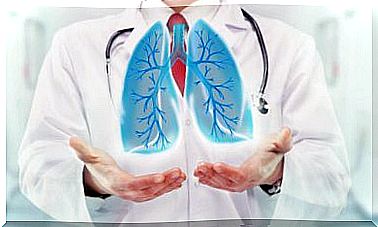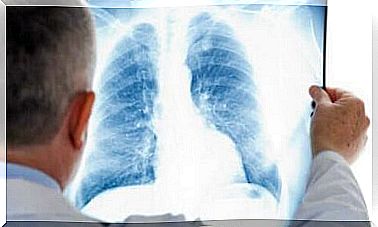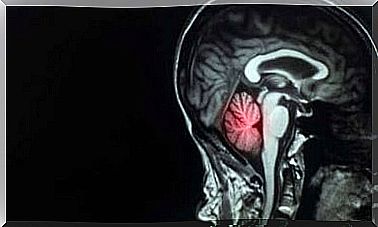Low Temperature Shock: Causes And Description
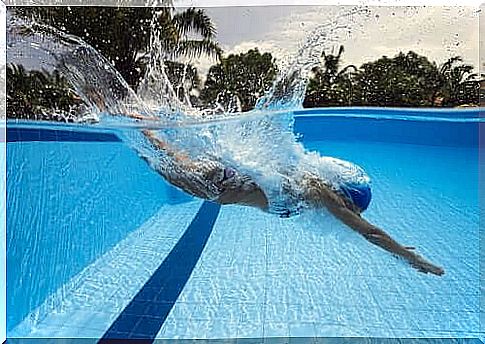
Cold shock is a process that often occurs in summer. It can lead to both minor discomfort and death.
Cold shock is a respiratory and circulatory response that is also associated with the digestive system and brain blood supply. In today’s article, we will explain why it occurs.
This disorder is often associated with digestive processes, although its main cause is deficiencies in brain perfusion. This is a consequence of the immersion reflex, triggered by the difference between body temperature and the temperature of the water a person enters.
This process occurs more frequently in summer and is directly related to sudden temperature changes that occur as you step into the water. As a result of the action of heat and sun, blood vessels dilate as the mechanism tries to keep the body temperature within normal ranges.
Dilation of blood vessels dissipates body heat, and in combination with sweating, it keeps the temperature in the normal range. Thus, the sudden expansion of blood vessels leads to cold shock shock when you suddenly enter water that is colder than your body.
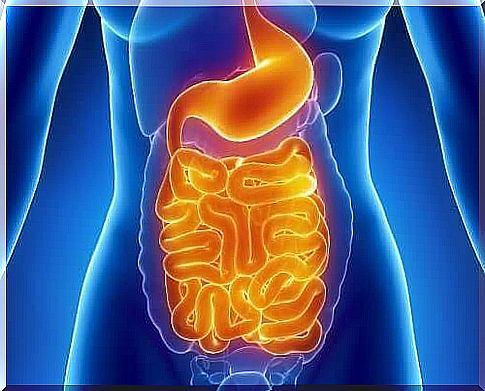
What exactly causes a cold shock to arise?
What we eat is combined with digestive juices during the peristaltic movements of the digestive processes. This process requires the supply of large amounts of blood. Thus, it forces the redistribution of circulation and supports the digestive part, depriving other organs or systems of blood.
Note that digestive processes are not the most important factor in the appearance of shock from sudden exposure to cold water. Rather, the “immersion reflex” is more important.

Immersion reflex
The immersion reflex occurs when the body, especially the head, is in the water. It depends on the difference in body and water temperature and the speed of descent.
It usually occurs due to a drop in heart rate and the redistribution of blood from narrowing of the blood vessels, especially those in the skin. This, in turn, is done to ensure that the correct amounts of blood and oxygen are delivered to the brain and to avoid sudden changes in body temperature.
The immersion reflex is clearly visible in children. In addition, people who are sensitive to it feel dizzy. Moreover, it can lead to loss of consciousness and even death from cardiac arrest.
Our body manages the supply of blood and oxygen to the brain and thus reduces their supply to other organs and tissues. The heart may stop beating, which can lead to sudden death or drowning when the reduction in blood supply and oxygen to the heart is sudden and severe.
Cold shock and the digestive process
Digestion is the process by which food ingredients are broken down into smaller, easier-to-digest molecules. These molecules pass through the small intestine to reabsorb the nutrients.
The time it takes for digestion to complete varies from case to case, and is related to the amount and type of food consumed. For example:
- Hearty meals with a high fat content increase the digestive time
- Eating vegetables, fruits and simple carbohydrates speeds up the digestive processes
The amount of time food remains in the stomach redistributes blood flow, and may vary from minutes to hours. This is what is responsible for the feeling of lethargy that we sometimes feel after eating. This is because the amount of oxygen that reaches the brain decreases.
It can be said that temperature shock occurs when a person who has not completed the digestive process dives into a pool where the temperature is significantly below body temperature. This immersion reflex can cause mild discomfort as well as cardiac arrest.
Symptoms of temperature shock
- Ringing in the ears
- Seeing as in a fog
- Chills
- Nausea
- Vomiting
- Loss of consciousness

Preventive measures
- Pay attention to the time needed to complete the digestive processes before entering the large body of water. Note that this time varies according to the amount and composition of the food consumed. They are the ones that affect the time needed for digestion.
- Avoid such intense physical activity that would increase your body temperature. The point is that it should be as close as possible to the water temperature.
- Don’t dive violently. Try to wet your forearms, arms, face, neck and abdomen with a little water. This will help you balance your body temperature and equate it with the temperature of the water before you immerse yourself in it.
- Avoid consuming cold drinks after stopping any vigorous physical activity as this can lead to dehydration.
Cold Temperature Shock Treatment
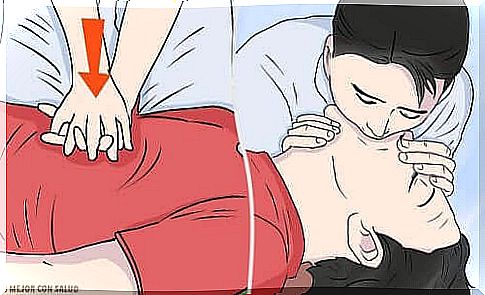
As always, knowledge and prevention are the keys to dealing with cold shock. Therefore, you must avoid any of the previously mentioned risk factors.
If you have already experienced cold temperature shock, take the person out of the water and pat them dry to try to bring them back to normal body temperature. Give artificial respiration until the ambulance arrives if you notice that there is unconsciousness or cardiovascular arrest.


